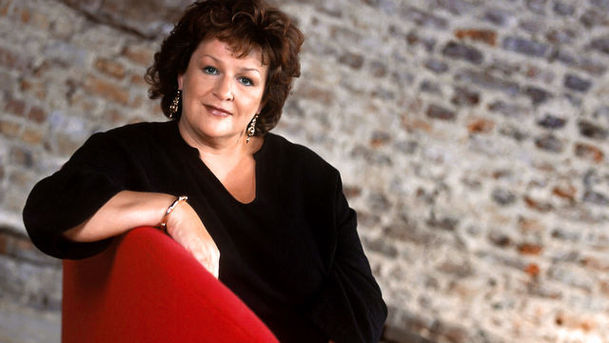The Early Music Show - Alla Francesca at the 2009 York Early Music Festival

In a programme exploring the impact of the Black Death on early music, Catherine Bott introduces highlights of a concert given in the Chapter House of York Minster by the ensemble Alla Francesca as part of the York Early Music Festival 2009. The music includes settings of Hebrew prayers, anonymous songs from the Jewish community, and sequences of instrumental and vocal music by Machaut. All music performed by Alla Francesca: Helene Decarpignies (voice) Brigitte Lesne (voice, harp, percussion) Emmanuel Vistorky (voice) Marco Horvat (voice, lute) Vivabiancaluna Biffi (vielle) Pierre Hamon (recorders, bagpipe) Ovadia Hager: Barukh Hagever (Hebrew prayer) Segue to: Moniot de Paris: Shalfu tzarim (Hebrew elegy) Machaut: Comment qu'a moy/Douce dame jolie (virelais) Segue to: Machaut: Puis que ma dolour (virelai) Segue to: Machaut: Honte, paour et doubtance (diminution from Codex Faenza) Segue to: Machaut: Mors sui se je ne vous voy (virelai) Segue to: Machaut: De toutes flous n'avoit et de tous fruis (ballade) Segue to: Machaut: Dame a vous sans retollir (virelai) Anon: Nu tret herzuo der boessen welle (penitent's song for the Black Death) Segue to: Anon: Maria unser frowe kyrie eleyson (penitent's song for the Black Death) Anon: Mamenyu, lyubenyu (song) Segue to: Anon: Graff von Rom (song) Segue to: Anon: Tif in veldele vakst a beymele (song) Segue to: Anon: Unter a kleyn beymele (song).